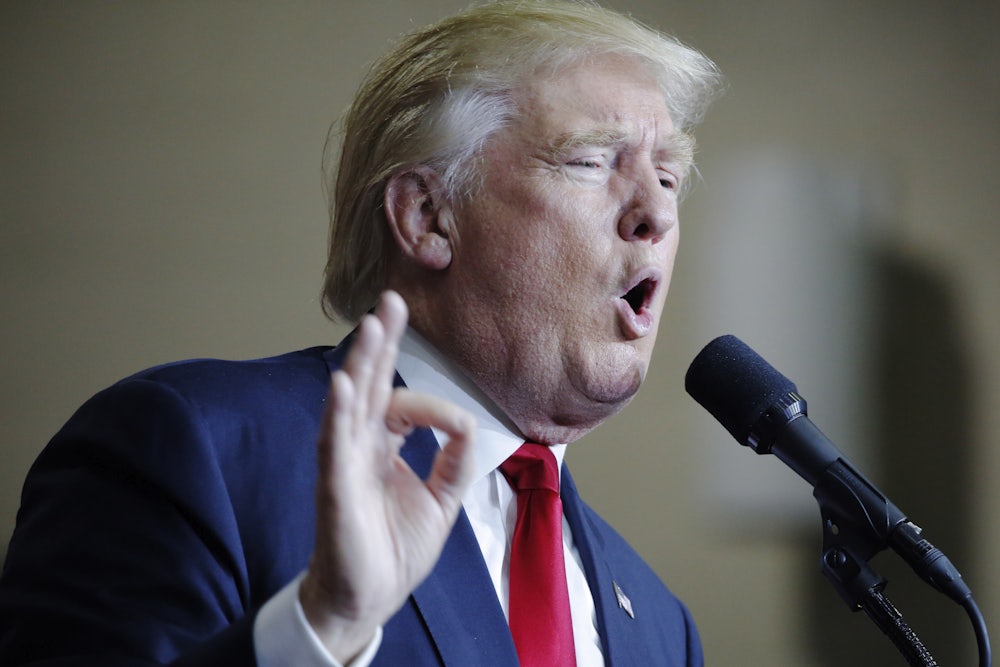Twitter has become such a prominent medium for public discussion that a presidential candidate’s use of the social network is now thought to be a window into his temperament. In her speech to the Democratic National Convention last week, Hillary Clinton said of Donald Trump, “A man you can bait with a tweet is not a man we can trust with nuclear weapons.” With this sentence, in a speech of this magnitude, Clinton presented Twitter as something like her opponent himself: impossible to ignore, but unserious.
Clinton wasn’t alone in associating Twitter use with frivolity. Three days earlier, Michelle Obama made the same point in her speech to the convention. As she put it, a president needs the circumspection to recognize that national issues “cannot be boiled down to 140 characters.”
If you spend enough time arguing with people on Twitter, you’ll eventually encounter a similar claim. It’s a convenient conversation-stopper when you’re losing an argument. On Twitter, the last refuge of scoundrels is to say that a debate is too complex for just 140 characters and then bow out or block your interlocutor.
But Trump himself proves every day that you can make complex statements on Twitter. Even if most of his arguments on the medium are ad hominem—and thus commit a logical fallacy— they often carefully layer classic rhetorical moves. When he’s not retweeting neo-Nazis, his best tweets “manage to hit upon all three of Aristotle’s modes of persuasion: logos (the appeal to logic), ethos (the appeal to credibility), and pathos (the appeal to emotion),” as Amanda Hess has written. Trump is even able to add meta-commentary (“Sad!”) to his arguments and stay under the character limit. Trump is indeed unfit for the presidency, but his use of Twitter is not the reason why.
In fact, the history of ideas is filled with good arguments that are also very brief. If they were alive today, great thinkers from the past would thrive on Twitter and thereby elevate our public conversation.
Only bits and pieces of writing by the first Greek philosophers, now known as the pre-Socratics, have survived the past 2,500 years, but they are nevertheless complex enough to warrant thorough study by scholars. Two immortal fragments of the pre-Socratic Heraclitus—“You cannot step into the same river twice” and “The way up and the way down are one and the same”—could fit into a single tweet. His saying, “Character is destiny,” sums up a message the Democratic National Convention spent four days delivering.
In ancient Christian thought, too, ideas expressed in a few dozen Greek, Latin, or Aramaic characters have animated an entire system of thought and culture. Each of the eight Beatitudes from Jesus’s Sermon on the Mount—beginning with “Blessed are the poor in spirit, for theirs is the kingdom of heaven”—comes in well under Twitter’s character limit. The best-known line in St. Augustine’s writings, and perhaps in all of Christian literature, is only 90 characters in English (and 70 in the original Latin): “You have made us for yourself, O Lord, and our hearts are restless until they rest in you.” Sayings like these are simple to communicate, but for Christians they stand as the greatest challenges of faith and ethics.
At the heart of modern Western philosophy is a 15-character argument. Composed in 1641, René Descartes’s “Cogito ergo sum”—“I think, therefore I am”—was the fruit of his attempt at finding a truth that was beyond doubt and thus could be the foundation of a fully rational mode of thought. Three centuries later, Ludwig Wittgenstein similarly tried to get down to first principles in his Tractatus Logico-Philosophicus. His starting point was the proposition that “The world is all that is the case.” Wittgenstein ends on an almost mystical note: “Whereof one cannot speak, thereof one must be silent.”
But the modern master of short, punchy aphorisms is Friedrich Nietzsche. We’ve all heard the pithy statement, “God is dead,” but Nietzsche’s 105-character follow-up to that sentence—“God remains dead! And we have killed him. How shall we comfort ourselves, the murderers of all murderers?”—raises the complexity, and the stakes, by an order of magnitude. And we mustn’t forget this argument, exactly 140 characters in English: “He who fights monsters might take care lest he thereby become a monster. And when you gaze long into an abyss the abyss also gazes into you.” These are words that Republicans like Paul Ryan and John McCain, who endorsed Donald Trump but whom Trump has not endorsed in return, ought to have considered several months ago.
Whether we’re talking about relations with Russia or the nature of existence, the ability to communicate a stand on a complex issue in an accessible and memorable way is not a shortcoming for a public figure. It is in fact a great and rare gift. There is a place and a time in a democracy for long speeches and treatises, but in a political system based on the participation of all citizens, it’s more often the case that brevity is the soul of wisdom.
